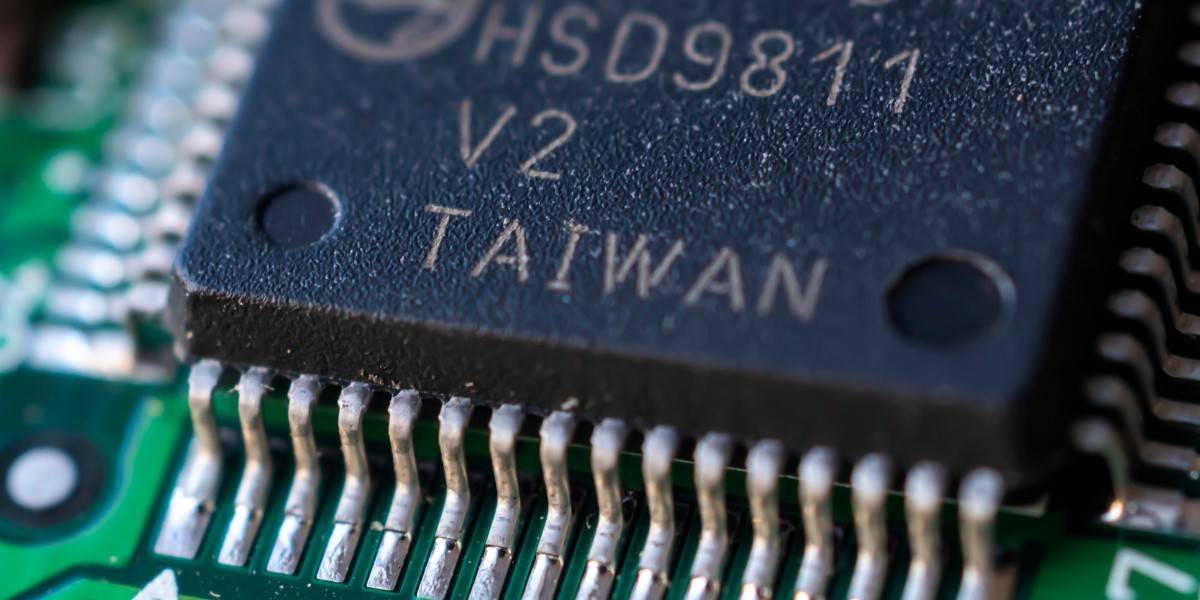Taiwan President Pokes The Bear By Saying The Nation Needs To Lessen Its Supply Chain Dependency On China

Taiwan's need to pull in external tech talent and the nation's supply chain dependence on China were two topics covered in a rare interview with President Tsai Ing-wen by Japanese outlet Bungei Shunju.
Taiwan's semiconductor industry dominates the global marketplace with homegrown giants like TSMC and in 2020 claimed 70 per cent of the world's OEMs. Tsai attributed (see transcript - in traditional Chinese) this success to its mature industrial clusters and concentration on foundries as a business model, which faces little competition.
One struggle that concerns Tsai is keeping up with high-tech talent, particularly as Taiwan's semiconductor companies continue to set up manufacturing plants overseas.
"It is very difficult to rely solely on Taiwan to provide excellent talents," said Tsai.
The nation is working to boost digital and language skills among the Taiwanese. Attracting international talent is also a goal with the government hoping to establish a common "talent pool" with nations where Taiwanese companies have operations.
Tsai envisions a future of cooperation with these nations. "If the advantages of Taiwanese companies can be combined with the strengths of Japan and the United States, they can play complementary roles in development," said the president.
- Naughty karaoke is China's next tech crackdown target
- Foxconn buys chip factory off Macronix in bid to break into the electric vehicle market
- Qualcomm's bumper Q3 growth comes with supply constraints warning, but Intel may ride to the rescue
- Over 100 Taiwanese political figures' messages leaked outta LINE app
Tsai described the government's approach to China as "maintaining the status quo," except for when it comes to supply chain dependency.
"Taiwan has also adopted a position that it should not rely excessively on China for its production bases and markets, and consider various risks, so that trade and investment can develop in a diversified manner," said Tsai.
"Although many Taiwanese companies now have production bases in China, in the future, it is necessary to diversify their trading partners and investment locations."
Chinese state media outlet The Global Times also covered the interview, clearly expressing its disproval with the headline "Tsai tries to belittle Chinese mainland's importance to Taiwan economy: experts". The article said any attempt to decouple the economies of Taiwan and China was "infeasible and impractical" and said Tsai's remarks showed her intention to follow the US government.
The videoconference interview, which also touched on COVID-19, vaccines, Hong Kong, and the Uyghur population, was the first time Tsai has spoken to a foreign media outlet since January 2020. ®
From Chip War To Cloud War: The Next Frontier In Global Tech Competition
The global chip war, characterized by intense competition among nations and corporations for supremacy in semiconductor ... Read more
The High Stakes Of Tech Regulation: Security Risks And Market Dynamics
The influence of tech giants in the global economy continues to grow, raising crucial questions about how to balance sec... Read more
The Tyranny Of Instagram Interiors: Why It's Time To Break Free From Algorithm-Driven Aesthetics
Instagram has become a dominant force in shaping interior design trends, offering a seemingly endless stream of inspirat... Read more
The Data Crunch In AI: Strategies For Sustainability
Exploring solutions to the imminent exhaustion of internet data for AI training.As the artificial intelligence (AI) indu... Read more
Google Abandons Four-Year Effort To Remove Cookies From Chrome Browser
After four years of dedicated effort, Google has decided to abandon its plan to remove third-party cookies from its Chro... Read more
LinkedIn Embraces AI And Gamification To Drive User Engagement And Revenue
In an effort to tackle slowing revenue growth and enhance user engagement, LinkedIn is turning to artificial intelligenc... Read more

